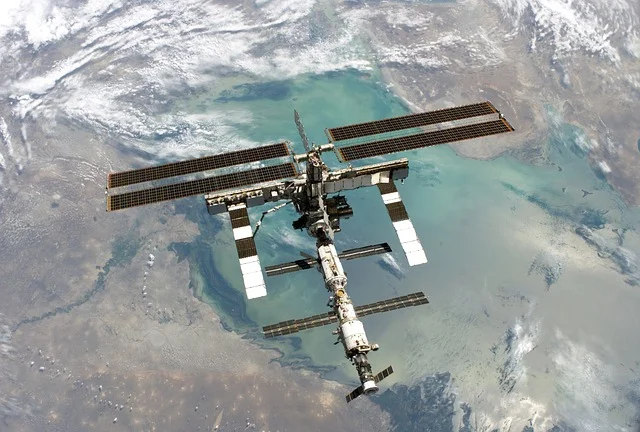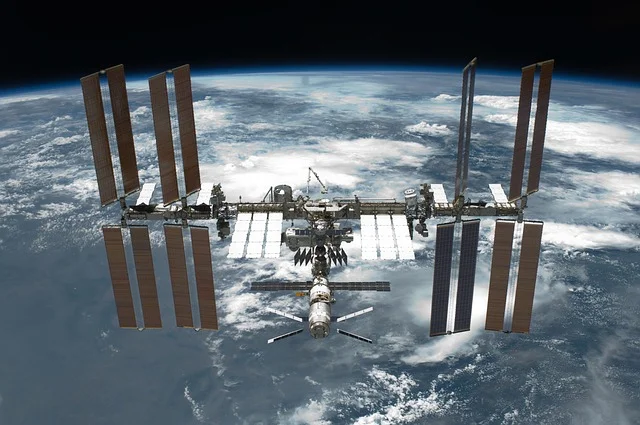Among the endless universe, there exists a singular structure that captivates our imagination. It is the testimony of human ingenuity that goes beyond boundaries, nurturing partnerships among nations. Meet the International Space Station (ISS), gracefully circling approximately 400 kilometers above our planet. It isn’t merely a beacon of human accomplishment; it’s a wellspring of real-world advantages enriching our daily existence. In this blog, we will delve into the details of the profound impact it can make on scientific research.
Unveiling the Intricacies of The International Space Station

Economic Returns and Technological Advancements
In 1998, we embarked on a journey that redefines our space exploration concept by establishing the International Space Station (ISS). This engineering feat represents a new era in space exploration. At its core, it highlights the incredible strength born out of nations joining forces worldwide. Countries like the United States, Russia, Canada, Japan, and the European Space Agency (ESA) have come together to create this marvel of science.
The investment in the ISS’s construction is more than the staggering £90 billion. This remarkable undertaking expands beyond our horizons into uncharted territories and sparks economic advancement. It demonstrates the profound impact of our shared commitment and collaborative efforts. According to Stefaan de Mey from the ESA, the ISS catalyzes financial returns, with every euro invested generating three euros in the short term. The spin-off technologies and innovations derived from ISS activities have applications in various industries, ranging from pharmaceuticals to environmental solutions.
- Advertisement -
Medical Breakthroughs Beyond the Stratosphere
One of the ISS’s most significant contributions lies in medical science. The unique microgravity environment aboard the station has become a testing ground for revolutionary medical innovations.
Targeted drug delivery and improved medicine are among the many fruits of ISS research. The study of protein crystal growth in microgravity has led to the development of drugs like Prolia, a leading treatment for osteoporosis. Moreover, the nanofluidic systems initially devised for the ISS present a compelling prospect for transforming drug delivery. These systems have the potential to emulate the natural behavior of the human body, releasing molecules with pinpoint accuracy to the specific areas where they are needed most.
Medical robotics, another domain influenced by the ISS, has given rise to groundbreaking devices like neuroArm and Image-Guided Autonomous Robot (IGAR). Initially designed for space operations, these robots now perform ultra-precise surgeries, offering hope to patients worldwide.
Sustainability Solutions from the Heavens
While the ISS may seem distant and unrelated to earthly concerns, its impact on sustainability is palpable. Adapting the station’s sophisticated water recycling and air purification system for practical use on Earth.
The Water Recovery System (WRS) and Oxygen Generation System (OGS) aboard the ISS are not just life-support mechanisms for astronauts; they serve as models for sustainable practices. Adapted versions of these systems are deployed in areas facing water scarcity or contamination, showcasing the ISS’s role in addressing global challenges.
Innovations in filtration technology, exemplified by the Aquaporin membrane tested on the ISS, have far-reaching implications. Membrane-based on forward osmosis principles demonstrates cost-effective removal of pollutants like microplastics from wastewater. This technology can revolutionize water treatment processes, offering a sustainable solution for the planet.
Conclusion: International Space Station the Marvel of Science
The International Space Station (ISS), standing for over two decades, is more than a space exploration milestone. It embodies collaboration, innovation, and a relentless pursuit of knowledge, impacting our lives economically, medically, and sustainably. In a challenging world, the ISS shines as a beacon of hope. As we gaze at the stars, it’s worth noting that solutions to our problems might be orbiting just above on the ISS, connecting the mysteries of space to our earthly challenges.


